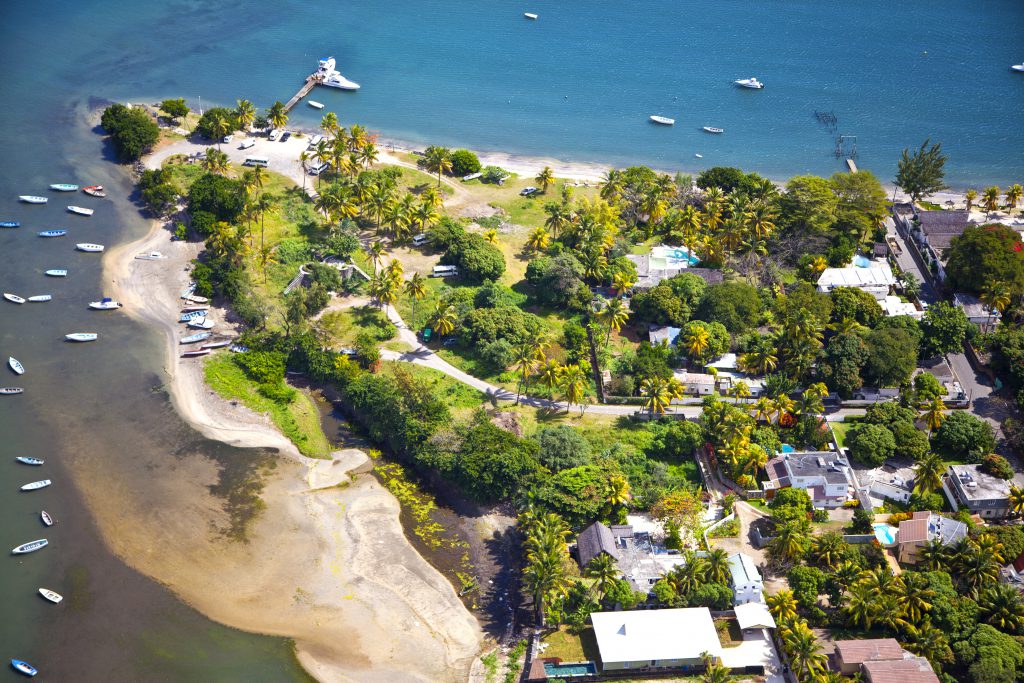Business Day Prime
How Offshore Investing Can Mitigate Risk
Investing offshore allows you to gain access to sectors and industries that may be small or nonexistent in the local market, such as the cutting-edge technology sector where you could buy Apple, Google or Twitter shares.
If you are considering taking the plunge and pouring your funds into offshore investments, Ben Mitchell, senior consultant at IP Global, says one of the key benefits is diversification and giving yourself a hedge against the political and economic volatility that we face locally. The Rand has lost a third of its value against the US Dollar in the past five years and remains under pressure. Emerging markets that are rapidly growing offer the prospect of yielding better returns than those limited to the domestic market.
Investing offshore provides investors with an opportunity to reduce their exposure to local risk and allows investors to access the vast investment opportunities available globally.
Jenny Ellina, founder and managing director of Cypriot Realty, adds that another advantage is that by internationalising the investment you are creating a legacy for your family and safeguarding your wealth by diversifying your risk exposure from a single country. “Apart from hedging against the volatile Rand, an offshore investment can realise a decent income, and depending on the location of the property will be appealing to either a long-term tenant or to the short-term, holidaymaker.”
Going beyond our borders
According to regulations, every South African citizen over the age of 18 is entitled to take up to R1-million per calendar year offshore without applying for permission from the South African Reserve Bank. This is called your Single Discretionary Allowance. South Africans can move a cap of R10-million a year out of the country to foreign bank accounts, provided they are taxpayers in good standing.
A tax clearance certificate is required first, which is not difficult to acquire. You simply go on the South African Revenue Services (Sars) eFiling platform and apply. Once tax clearance has been provided, a local bank can deposit the money in an offshore account, which can then accrue interest, be traded and used to buy property or bonds.
Ellina points out that some locations, such as Cyprus, Mauritius, Austria and St Lucia, offer the opportunity to secure second citizenship or permanent residency through property investment, so the property purchase results in a tangible benefit to the main applicant and family.
Other potential benefits can include favourable tax regimes and solid capital appreciation.
The different vehicles for offshore investments include offshore venture capital, offshore mutual funds and international real estate, and Mitchell says each needs a tailored approach. “Different routes will work for different clients and each one needs to be explored on a case by case basis to determine the best options for them based on their individual set of circumstances.”
Increasingly, looking at offshore investments as part of their retirement planning is not just limited to the super-rich, even middle-class individuals are looking beyond our borders to invest. However, retirement savers are constrained by regulation 28 of the Pension Funds Act, which keeps their offshore exposure to 30 per cent of the fund, but retired investors, who have invested their retirement savings in living annuities are free to set their own offshore allocations.
If you’re a new entrant to this class of investing, Mitchell says there are several factors you should consider when venturing into this territory. “At a high level you need to make sure that the country you are considering has a stable political and economic environment, that the entry and exit costs won’t bite into the investment, that there is a transparent legal and tax framework in place, that it is easy for an international buyer/investor to get local mortgage finance, among other factors.”
What to know when moving your money
Mitchell says the next step is to dig deeper and identify the areas you want to invest in within those countries. “This is where you can become unstuck unless you know what you’re looking for.” The risks of putting your money in a different market warrant seeking professional help; experienced guides can assist by undertaking a comprehensive research and due diligence process on behalf of clients.
“They will look at everything from the supply and demand imbalance of a location, for instance, assess if there is not enough property being built to keep up with the demand,” explains Mitchell. They will also identify if there are any regeneration or infrastructure projects being built that will drive future price growth and rental yields and look at the underlying sales and rental market and its track record. “Only after thorough investigation and when we are 100 percent confident in a particular location will we identify investment opportunities within it.”
According to Ellina, when it comes to the legalities around offshore investments, the most important factor is proof of source of funds. “There needs to be a clear connection between the investor and the funds, with supporting documentation as proof. Another important checklist item is a clean police clearance certificate.”
She explains that when securing permanent residency or second citizenship through property investment, requirements include securing apostilled unabridged personal documentation from South Africa, for example, birth, marriage and police clearance certificates, proof and source of income, and medical insurance in the country of destination. Investors are advised to appoint conveyancing attorneys in the jurisdictions they are buying property to ensure they are fully represented and protected.
The extra charges that one could run into when investing offshore depend on the type of investment you are making, but according to Mitchell, they are not really that different to those you need to consider when investing locally, especially when putting your money into property. “It is things such as legal fees, stamp duty/transfer duty, mortgage arrangement fees and furnishing the apartment, however, it is important to understand the different definitions and processes before you embark on offshore property investment.”
South Africans are allowed to invest a total of R33 000 per year (maximum lifetime contribution of R500 000) into a tax-free savings account (TFSA). A TFSA is not a single, standardised investment vehicle. It can be a money market or fixed-term bank account, a JSE-listed exchange-traded fund, or a unit trust that invests offshore.
You can take your annual TFSA and invest it into a unit trust that invests offshore and pay zero tax on it, locally and abroad.
Tax-friendly countries
Some countries have structured the tax regimes to attract investors, sometimes controversially so. For instance, Mauritius has signed double tax avoidance agreements (DTAA) with 46 states worldwide, 18 of them from Africa. These bilateral agreements encourage investment by ensuring investors from one country operate in another without being taxed twice on the same income.
Over the past 10 years, the total wealth held in Mauritius has risen by 195 per cent in US Dollar terms, making it the fastest-growing wealth market in Africa and one of the top three worldwide. Offshore investors can be tempted by simpler taxation systems, for instance, in Mauritius corporate income and personal income are taxed at a maximum rate of 15 per cent, with further tax concessions available. Mauritius does not levy withholding tax on dividends and there is no capital gains tax, property tax, or inheritance tax.
The Caribbean offers some of the most popular tax havens in the world, providing benefits such as very low tax liability and financial privacy. Among the most used Caribbean tax havens are the Bahamas, Panama, and the Cayman Islands.
Despite the appeal, it is advisable to work with a seasoned tax professional before setting up an offshore account or business. The perfect scenario will be to bring your money back to South Africa when the Rand is weak and when you have substantial gains on your investment.






 Sign-up and receive the Business Media MAGS newsletter OR SA Mining newsletter straight to your inbox.
Sign-up and receive the Business Media MAGS newsletter OR SA Mining newsletter straight to your inbox.